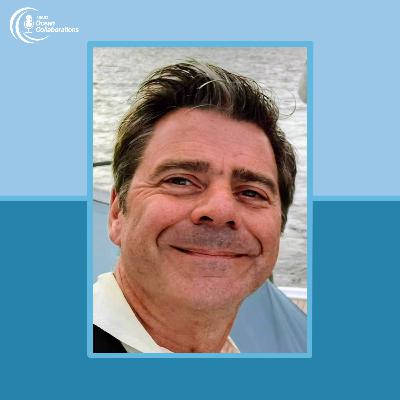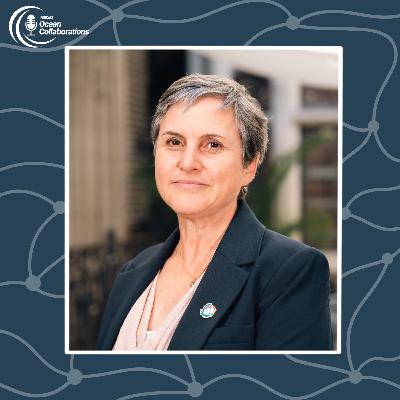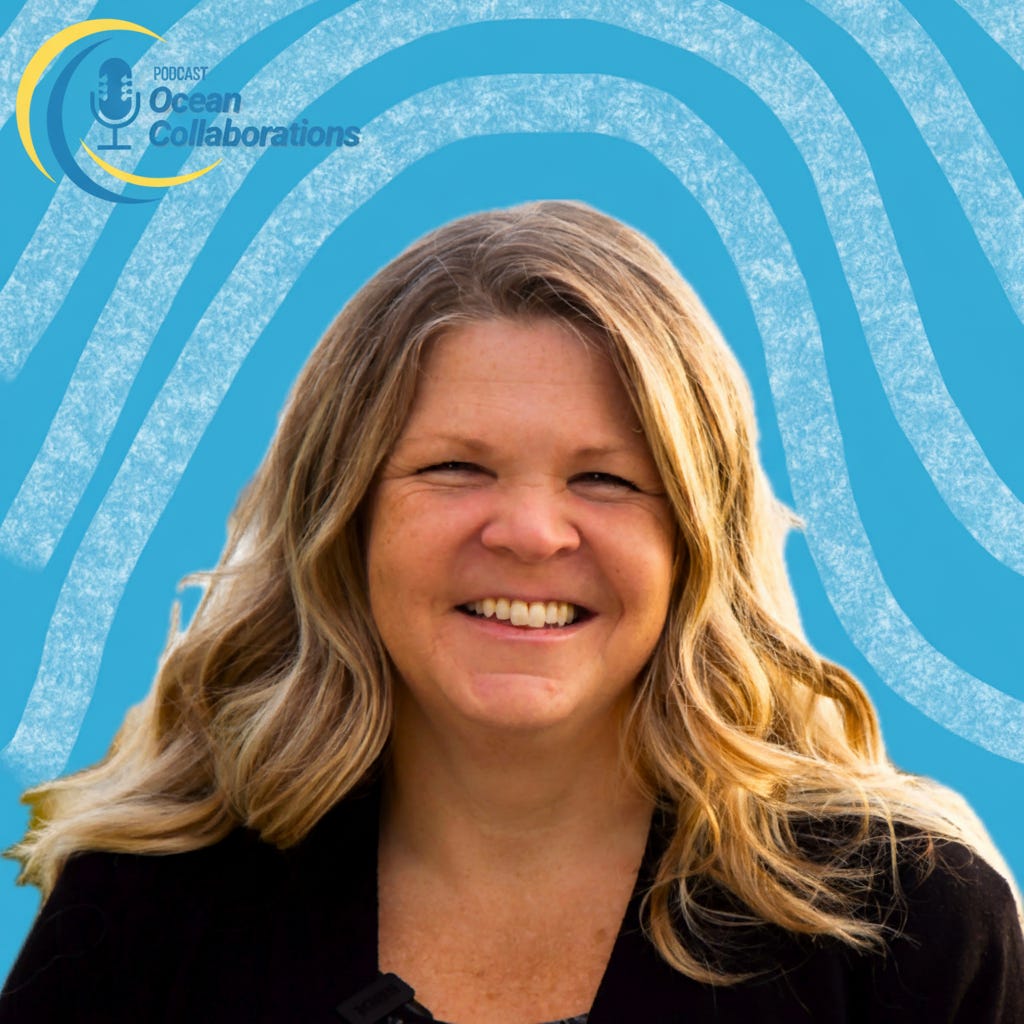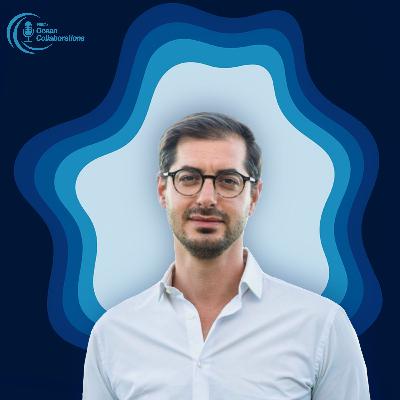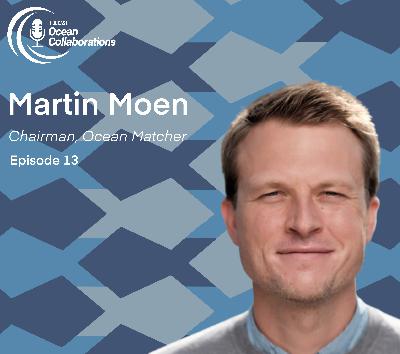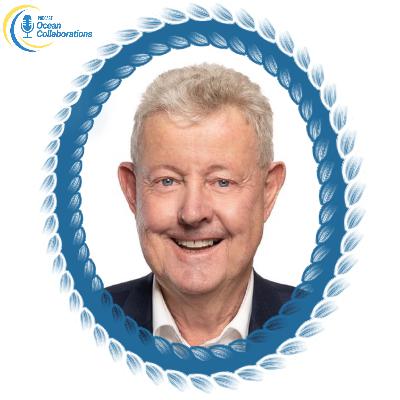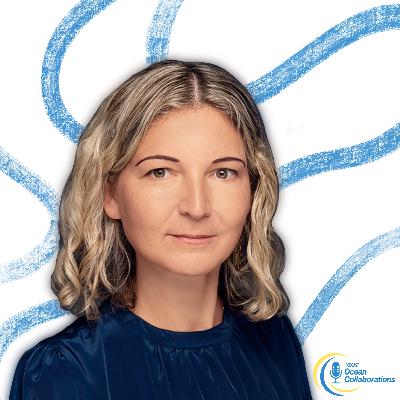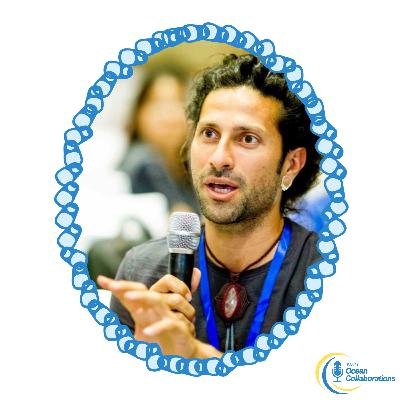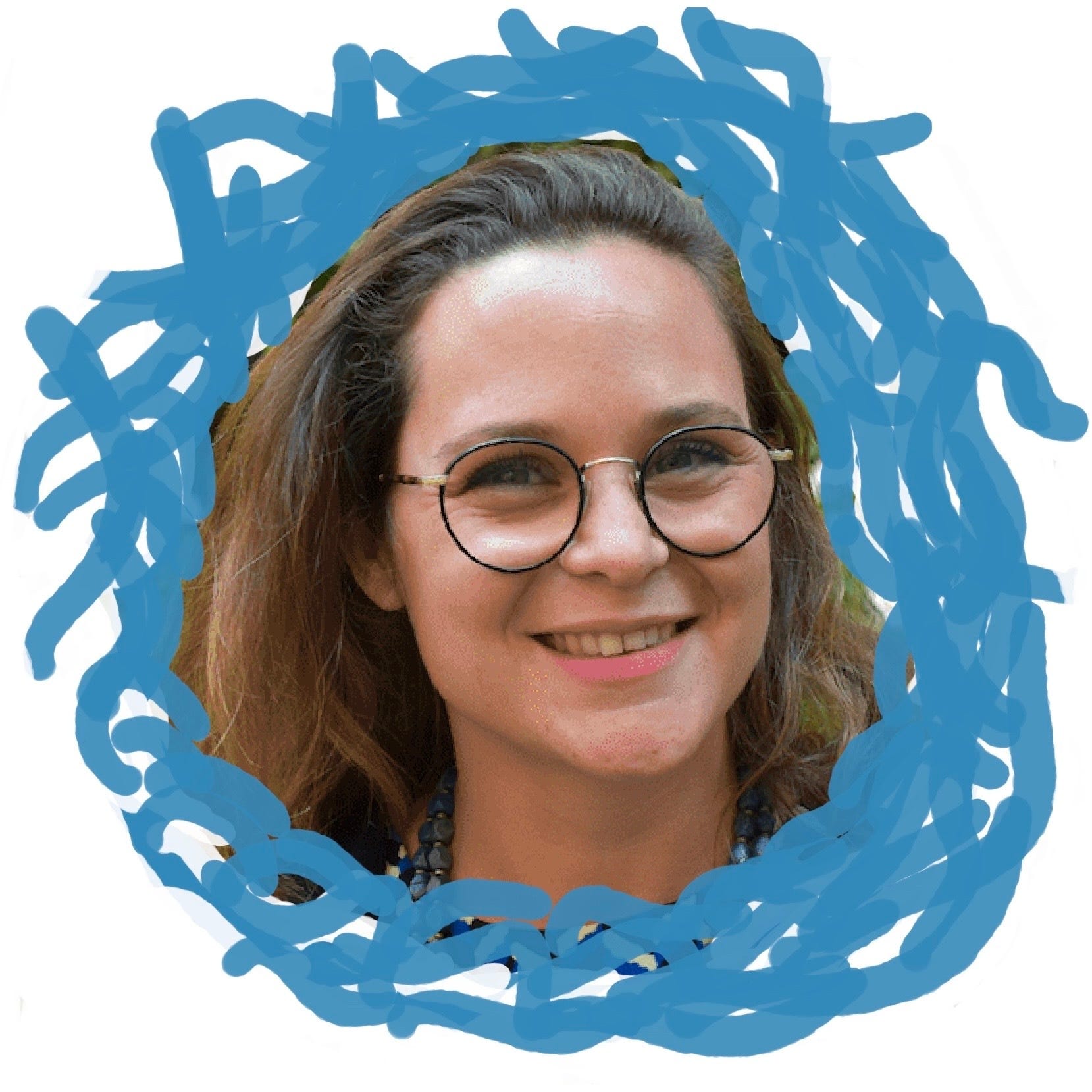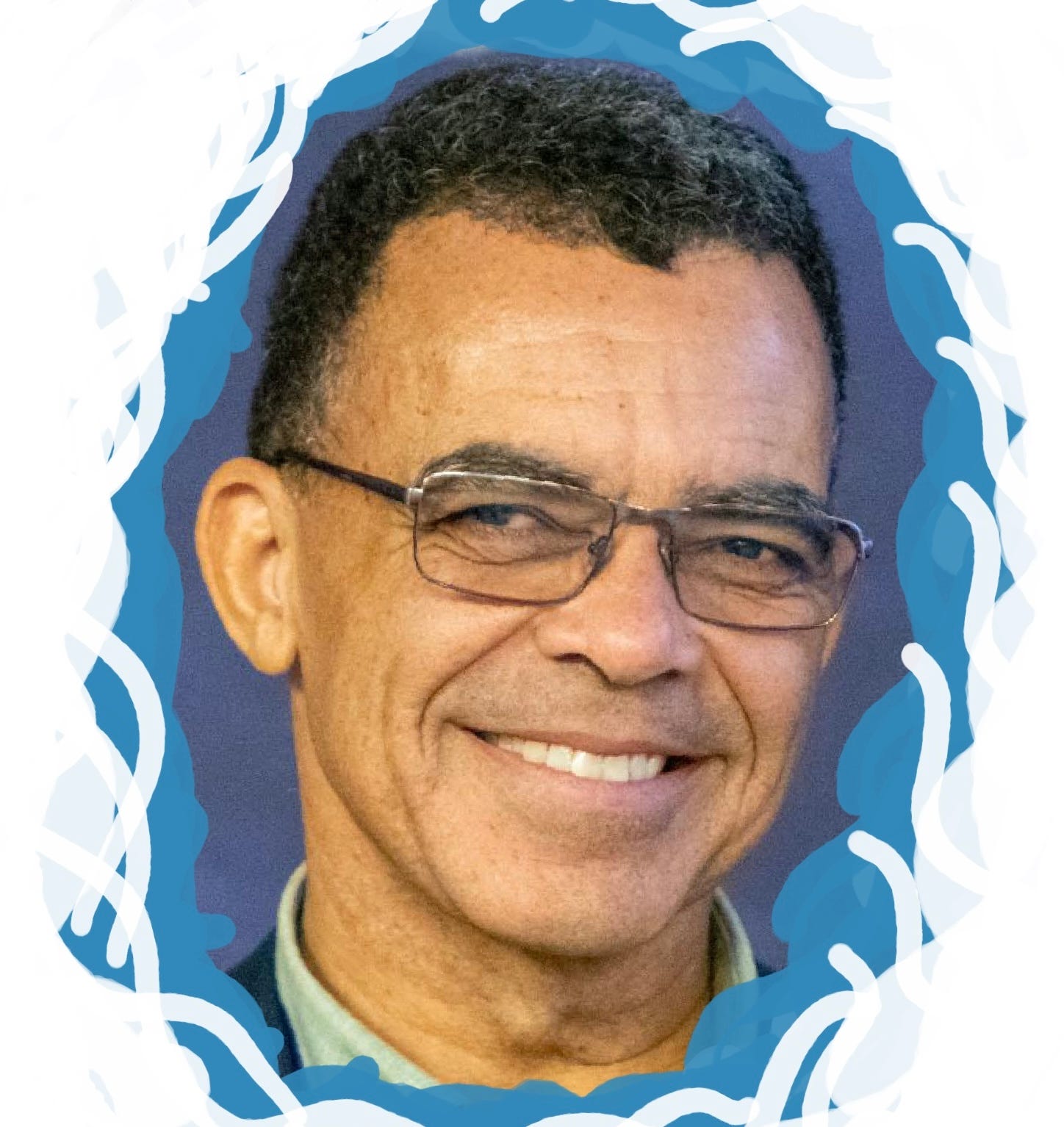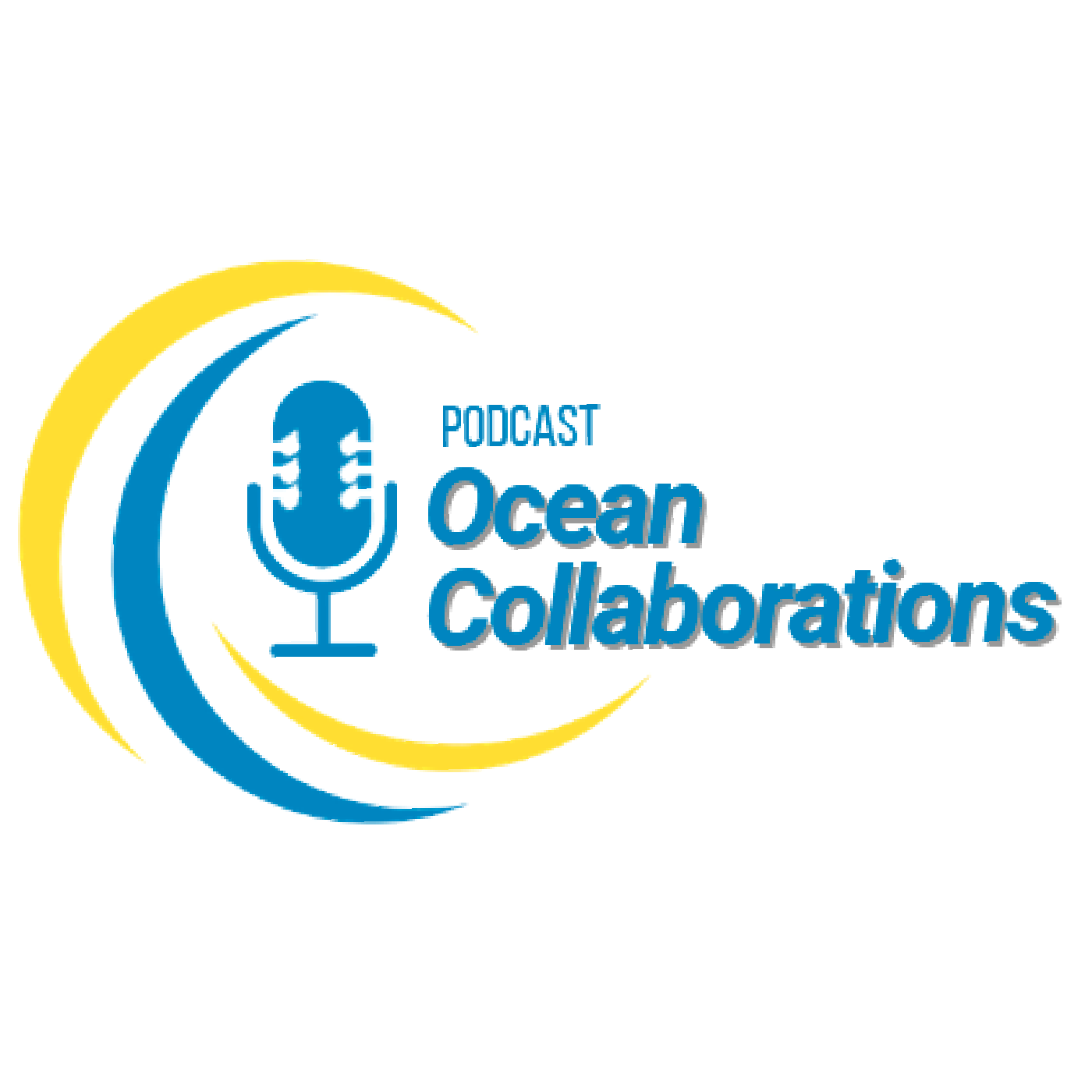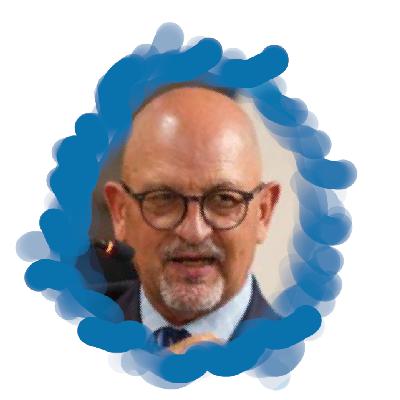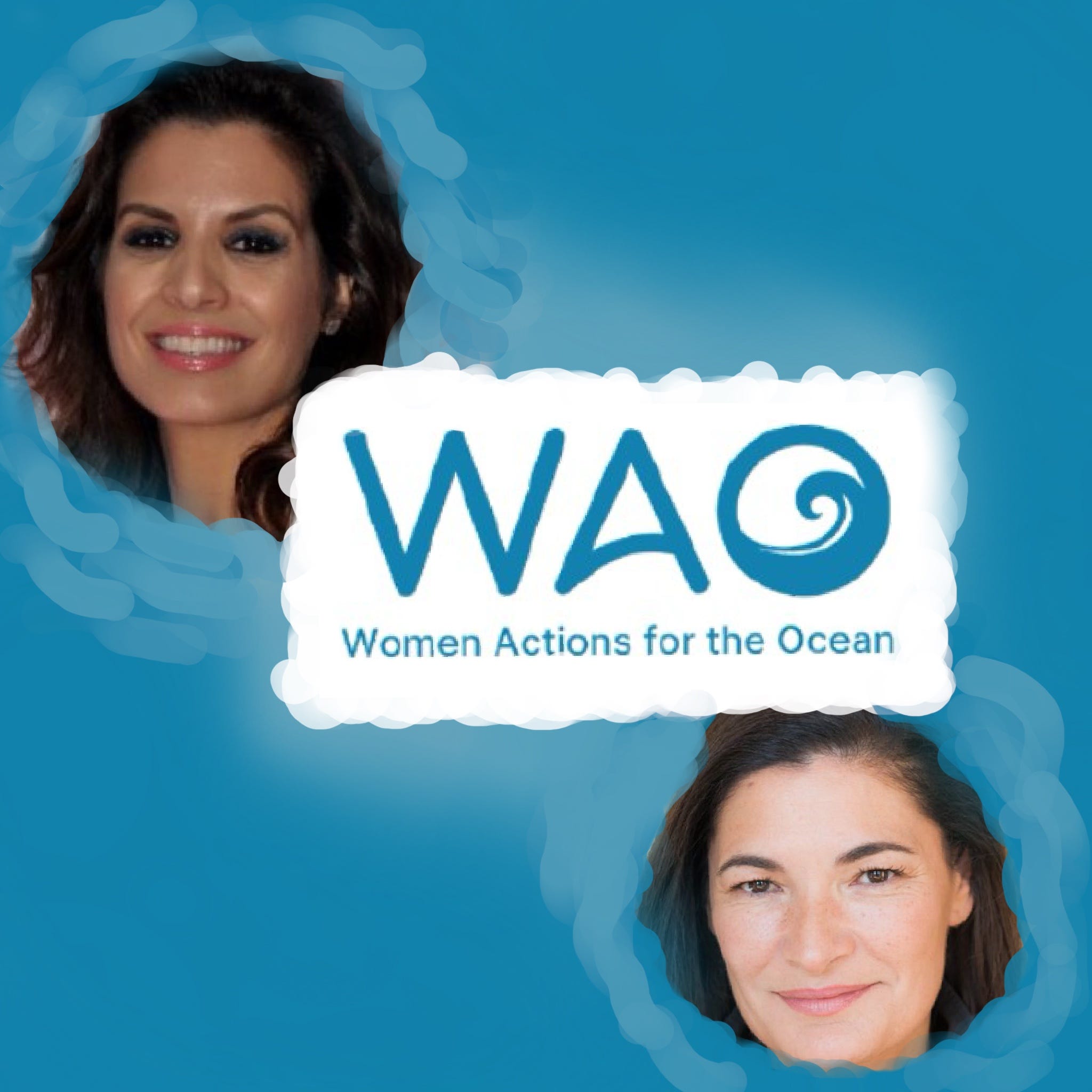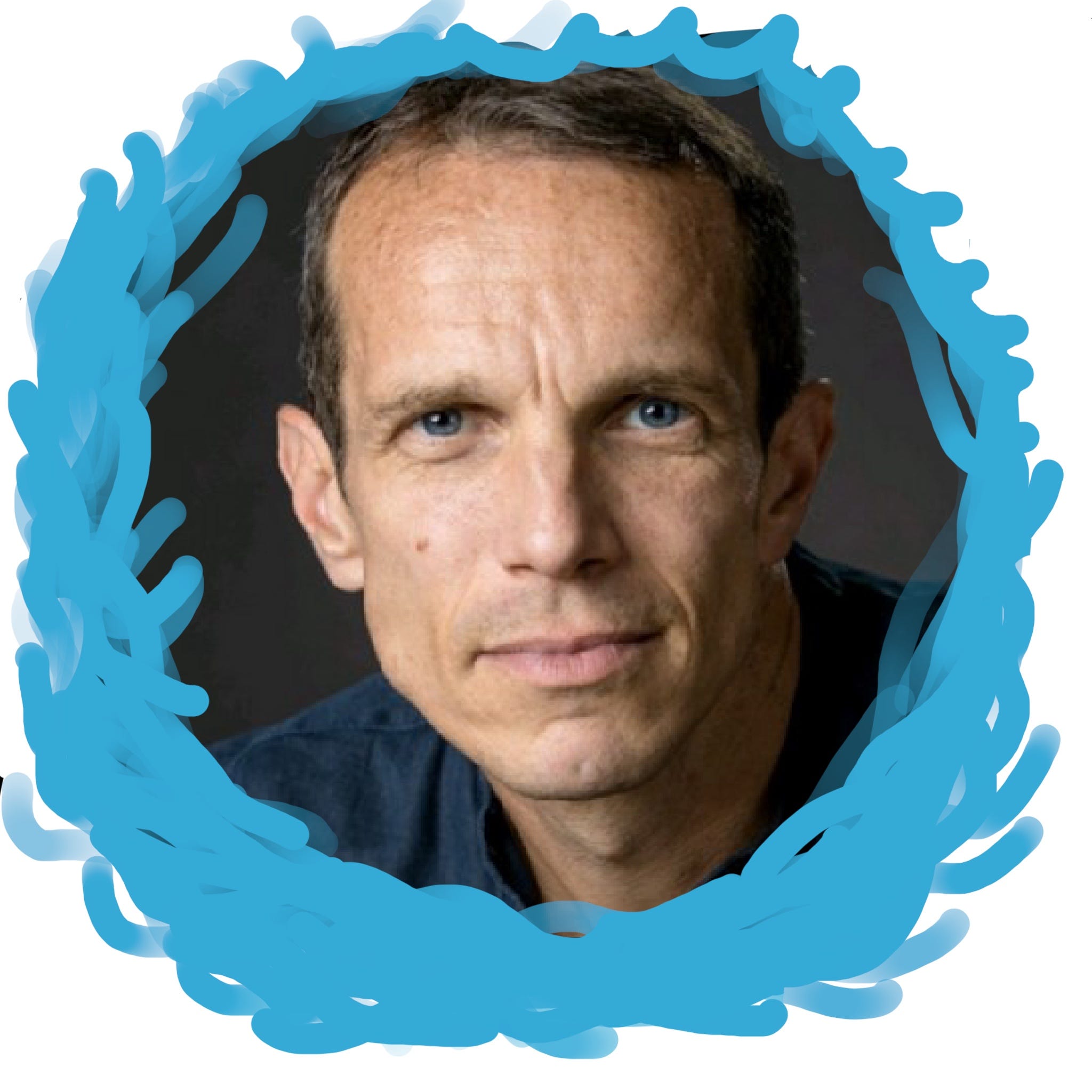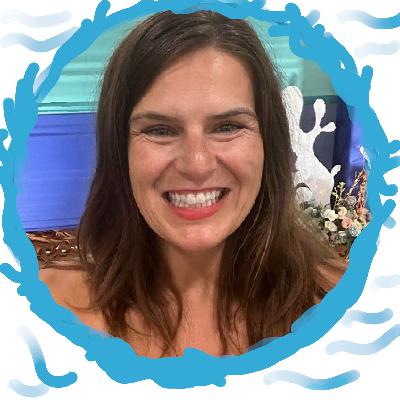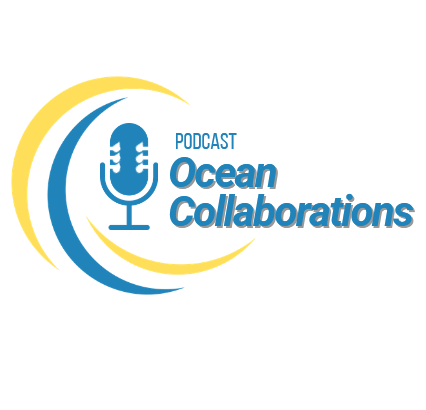Discover Ocean Collaborations
Ocean Collaborations

Ocean Collaborations
Author: Ocean Collaborations from Jan Maisenbacher
Subscribed: 0Played: 0Subscribe
Share
© Jan Maisenbacher
Description
Unique ocean knowledge from ocean regeneration projects and personalities that make waves, shape the future and lead the change for blue regeneratives economies. Get inspired how the magic of collaboration is able to scale impact for our oceans!
janmaisenbacher.substack.com
janmaisenbacher.substack.com
20 Episodes
Reverse
In this episode of Ocean Collaborations, host Jan Maisenbacher speaks with Marie-Céline Piednoir, founder of Positive Ripple Consulting, about her journey from the corporate world to ocean conservation. They discuss the importance of personal responsibility in ocean awareness, the challenges of navigating a career in ocean conservation, and the role of women in this field. The conversation also explores the emerging blue regenerative economy and the significance of multilateralism in ocean conservation efforts. Marie-Céline and Jan share valuable do’s and don’ts for those considering a career switch into this impactful space. This conversation is “straight to the heart”—no fluff.Takeaways* A career switch doesn’t have to be radical; small steps can lead to significant change.* Ocean conservation receives only 1% of climate finance, highlighting the need for more support.* Networking and collaboration are crucial for finding opportunities in ocean conservation.* Women play a vital role in ocean conservation, and solidarity among women is strong in this field.* The blue regenerative economy offers new opportunities for professionals from various sectors.* Multilateralism remains important for shaping ocean conservation policies, even in challenging times.* Individuals can support ocean conservation without fully quitting their jobs.* Volunteering and mentoring can provide valuable experience and connections in the field.* It’s essential to be gentle with oneself and recognize that change takes time.Chapters00:00 Introduction to Ocean Collaborations and Career Switches05:34 Marie-Céline’s Journey into Ocean Conservation12:28 The Importance of Ocean Awareness and Personal Responsibility20:42 Navigating the Challenges of Ocean Conservation Careers30:32 The Role of Women in Ocean Conservation35:57 Exploring the Blue Regenerative Economy44:31 The Importance of Multilateralism in Ocean Conservation47:20 Do’s and Don’ts for Career Switchers in Ocean ConservationConnect with Marie-Céline on LinkedIn: https://www.linkedin.com/in/mcpiednoir/Positive Ripple Consulting: https://www.positiverippleconsulting.org/Mentioned projects in the podcast:Climate-Resilient Coral Reefs Commitment: https://coralcommitment.com/protect-the-reefWomen Ocean Guardians: https://womenoceanguardians.org/ This is a public episode. If you would like to discuss this with other subscribers or get access to bonus episodes, visit janmaisenbacher.substack.com
On 17 January, the BBNJ Agreement (High Seas Treaty) officially enters into force – a historic step for global ocean protection. To mark this milestone, Episode #19 of Ocean Collaborations looks at what this agreement means far beyond coastlines, with youth collaboration and equity at the center.Jan Maisenbacher speaks with Autone Mululuma (20), a passionate climate justice advocate and one of the High Seas Youth Ambassadors based in Zambia. They discuss the significance of the High Seas Treaty, youth empowerment in climate advocacy, and the challenges faced by landlocked countries in engaging with ocean issues. More about Autone (on Earthecho): https://www.earthecho.org/team/autone-mululumaAutone shares insights on the role of media, creative outreach strategies, and the importance of intergenerational collaboration in promoting ocean conservation. The conversation highlights the need for capacity building, equitable sharing of marine resources, and the aspirations of youth in shaping future ocean governance.Why this conversation matters now* 🌐 The BBNJ Agreement enables shared stewardship of the high seas* 🌊 Ocean health underpins climate stability and livelihoods everywhere* 🤝 Youth play a key role in translating policy into actionWhat you’ll take away* 👩🏽🎓 How African youth are shaping future ocean governance* 🗺️ Why landlocked countries matter in high seas protection* 🚀 How collaboration unlocks capacity, equity, and long-term impact📩 Get in touch with us by email at info@janmaisenbacher.com if you want to help bridge-building on Ocean Youth Collaboration in Africa (and/or connect with Autone on Linkedin: https://www.linkedin.com/in/autone-mululuma-556337288) This post is public so feel free to share it.Takeaways* Time to celebrate: the High Seas Treaty is crucial for marine biodiversity.* Youth empowerment is essential for climate advocacy.* Youth can act as bridges between science, policy, and communities.* Intergenerational collaboration is vital for effective advocacy.* Media plays a key role in disseminating ocean information.* Creative outreach can connect communities to ocean issues.* Capacity building is necessary for effective ocean governance.Chapters01:00 Introduction of Autone Mululuma02:15 What Autone is inspired by Ocean Collaborations Podcast05:20 Check-in ocean replies from Autone08:15 Autones collaboration learnings as a youth campaigner13:00 Creative youth outreaches that worked in? 18:15 Learnings with the Earth Echo cohort of the High Seas Youth Ambassador20:40 Challenges in the cohort for youth ocean advocacy22:40 High Seas Treaty (BBNJ) collaboration challenges for landlocked youth27:00 BBNJ effects on landlocked Zambia (and African youth)29:00 Autones view on BBNJ North-South & South-South co-creations33:22 Personal Reflections and Future Goals34:00 Brainstorming & Call for further ocean collaboration for Youth in Zambia 📩 Get in touch with us by email at info@janmaisenbacher.com if you want to support our collaborate on Ocean Youth Collaboration in Africa (and/or connect with Autone on Linkedin: https://www.linkedin.com/in/autone-mululuma-556337288) Further article: Deep conn8/ection: Why even landlocked Africans are defending the seas #OceanCollaborations #BBNJ #HighSeasTreaty #YouthLeadership #OceanGovernance #Africa #ClimateJusticeThanks for reading! Subscribe for free to stay up-to-date about future ocean collaborations episode (also available on Spotify and Apple Podcast). This is a public episode. If you would like to discuss this with other subscribers or get access to bonus episodes, visit janmaisenbacher.substack.com
In the #18 episode the Founder and Executive Director of Noventus Foundation, Koen Vriesacker, sails close to the winds of ocean collaboration with Jan Maisenbacher 🌊. Koen is an belgian-based expert inter-organizational in networks who's spent 16 years mastering the art of wicked collaboration.It is a discussion on the relevance of interorganisational collaboration, and why this is needed to move forward in our current world. The dialogue emphasizes the need for structured approaches to foster trust and engagement among stakeholders, as well as the role of innovative solutions in addressing complex issues like deep sea mining. First real ocean collaboration possiblity: You are professionally involved in Deep Sea Mining? Get in touch! We need you for a follow-up collaboration discussion on that wicked ocean challenge: info@janmaisenbacherThanks for reading! Subscribe for free to receive new posts and support ocean collaborations.Why this episode matters for ocean regeneration:⛵ No mess, no magic – True collaboration requires friction, diversity, and courage to engage unlikely allies (yes, including the “evil other side” 🏢)⛵ Trust the structure, not just the people – Trustworthy frameworks outlast individual relationships and create long-term collaborative success⛵ The Mediterranean merchant approach – Selective connections between diverse knowledge bubbles drive innovation faster than full connectivityWhat ocean changemakers need to unlearn:⛵ Collaboration ≠ working only with people like us⛵ We can’t skip steps on the collaboration staircase (from competition → coexistence → communication → coordination)⛵ Measuring collaboration health is as crucial as measuring environmental impactThe path forward for 2030:⛵Bottom-up, on-site multi-stakeholder collaborations (fishermen + NGOs + tourism + business)⛵Small teams of 10 trusted bridge-builders tackling challenges like deep sea mining⛵Relational structures over transactional ones—because wicked problems need adaptive frameworks, not fixed answersChapters00:00 Introduction and Personal Background05:34 Collaboration in Ocean Conservation08:30 The Role of the Ocean and Human Responsibility11:25 Transitioning from For-Profit to Non-Profit14:42 Theories of Collaboration17:27 Challenges in Ocean Collaboration20:40 Philanthropy and Ocean Conservation23:33 The Dilemma of Economic Growth vs. Ocean Health26:33 Future of Collaboration in Ocean Conservation30:47 The Role of Regulation in Ocean Conservation31:25 Collaboration at the Ocean’s Edge32:47 Breaking Down Barriers to Collaboration34:15 Navigating Wicked Problems in Collaboration36:00 The Importance of Human Capacity in Collaboration36:36 The Power of Unlikely Alliances38:35 Building Trustworthy Frameworks for Collaboration40:13 Steps to Effective Collaboration45:27 Deep Sea Mining: A Collaborative RoadmapConnect with Koen on LinkedIn:https://www.linkedin.com/in/koenvriesackerMore information about Noventus (www.noventus.org):* The Noventus Foundation advances collaboration for impact. It offers the expertise and effort that is needed to create and develop interorganisational collaboration and networks. Through initiatives in science, education, philanthropy, art and culture, the Noventus Foundation offers support to NGOs, non-profits and impact organisations.* Noventus has a solid track record in a broad range of sectors, all across the world, involving many organisational settings (SME’s, corporates, foundations, non-profit, governmental institutions, research, education, ...)Follow Noventus on LinkedIn: https://www.linkedin.com/company/noventusfoundation/ This is a public episode. If you would like to discuss this with other subscribers or get access to bonus episodes, visit janmaisenbacher.substack.com
In this Ocean Collaborations podcast episode Jan Maisenbachers surfes and dives with Karen Sack, Co‑Founder and Executive Director of the Ocean Risk and Resilience Action Alliance. This alliance is celebrating five years and keeps innovating to deliver 50 finance products by 2030 to drive $500M into nature-based solutions. Their Mission: Build the resilience of 250 million climate vulnerable costal people in the Global South.🌍Listening to Karen’s story is a masterclass in building coalitions across worldviews – and in staying resilient when the political and funding landscape feels like “whiplash”. She shares powerful, very concrete stories in radical collaboration, including:💠 How ORRAA helps design finance and insurance products:👉 Get inspired how to bring insurers, banks, governments, NGOs, scientists and coastal communities to one table – and keep them there💠ORRAA’s work with Deutsche Bank and other financial instituations on integrating ocean and nature into investment decision-making:👉 Understand how to translate “ocean & nature” into the language of risk, return, balance sheets and long‑term resilience💠 What she learned from fighting apartheid and working at Greenpeace👉 Understand how a former Greenpeace campaigner can co‑create solutions with Deutsche Bank, UBS, Swiss Re & othersKaren Sack on LinkedIn: https://www.linkedin.com/in/karen-sack-82aa2113/Mentioned projects from Karen in the podcast:* Abalobi - Sustainable Fishing: https://oceanriskalliance.org/project/powering-sustainable-fishing-through-community-led-technology/* Save The Waves: https://oceanriskalliance.org/project/developing-insurance-products-for-surf-ecosystems-and-surf-breaks-save-the-waves-2/* Inversa Leathers: https://oceanriskalliance.org/project/invasive-lionfish-management-quintana-roo-mexico-inversa-leathers/Karen Sack’s reflections from pre-COP30 events in São Paulo and Rio de Janeiro: https://www.linkedin.com/posts/karen-sack-82aa2113_backblue-oceanresilience-naturefinance-activity-7393642450780803072-Vhut?utm_source=share&utm_medium=member_desktop&rcm=ACoAAAyfdasBo4hlyI6BhbXO7eWac7Eh34oe1l0Link list from ORRAA:* ORRAA website: https://oceanriskalliance.org/* ORRAA What We Do: https://oceanriskalliance.org/what-we-do/* ORRAA’s Product Pipeline: https://oceanriskalliance.org/pipeline/* The #BackBlue Ocean Finance Commitment: https://oceanriskalliance.org/project/back-blue-ocean-finance-commitment/* Deutsche Bank’s New Sustainable & Finance Transition Target: https://www.db.com/news/detail/20251117-deutsche-bank-sets-new-2030-sustainable-and-transition-finance-target-and-publishes-its-initial-transition-finance-framework?language_id=1* ORRAA’s Reflections on the COP30 Outcomes: https://oceanriskalliance.org/events/orraa-at-cop30/Thanks for reading and listening Ocean Collaborations on Subsack! Subscribe for free to receive new posts and support my work.💬 Note on our own behalf - message from Ocean Collaborations podcast: Ocean Collaborations is looking for new episode guests! * Are you a leader of an ocean regeneration organisation (non-for-profit, NGO)?* Are you struggling with your regeneration projects? * Are you not finding the right manpower and/or skilled labor?Then please don’t hesitate get in touch! You may be our man or woman:Or write an email to info@janmaisenbacher.com This is a public episode. If you would like to discuss this with other subscribers or get access to bonus episodes, visit janmaisenbacher.substack.com
In this episode of Ocean Collaborations, Jan Maisenbacher speaks with Karine Toumazeau, founder and CEO of Moshun.Earth They exchange around her innovative work where she is flipping corporate foodprints into ocean wins.This episode starts with an honest conversation around Karine’s Mompreneurship journey.It also explores the opportunities of silo-breaking collaboration across sectors to address ocean health. Learn why the importance of storytelling and the integration of indigenous people is a core driver to regenerate the ocean as well as finding new investment pathways. You can contact Karine for business opportunities, mentorship or media inquiries (see her LinkedIn link at the bottom).Take-AwaysCollaboration across sectors is crucial for effective ocean conservation.The ocean space is niche and often siloed, hindering collaboration.A common agenda is needed to unite various stakeholders in ocean health.Companies often overlook their dependence on healthy ocean ecosystems.A shift from extractive to regenerative mindsets is neededChapters00:00 Introducing Karine02:55 Karine as the “Voice of the Ocean”06:00 Karine’s personal view of her solo mompreneurship journey17:20 Deep Dive how Karine started (and is now building) Moshun28:00 Building Collaborative Bridges between for-profit and non-for-profit sector 35:00 Status of the Moshun proof-of-concept platform closing the ocean regeneration project circles (and was ocean genetics may have to do with it)37:50 The ocean and its ecosystems as a new nature asset class - and why indigenous people will finally profit from it. Karine on LinkedIn: https://www.linkedin.com/in/karinetoumazeau/Links from Karine:Her ocean impact venture Moshun: https://www.moshun.earthThe SEA People (locally named ‘Orang Laut Papua’), is a field based non-profit foundation working to contribute to the conservation of one of the last locations on Earth where coral reef systems still thrive: https://theseapeople.org This is a public episode. If you would like to discuss this with other subscribers or get access to bonus episodes, visit janmaisenbacher.substack.com
In this conversation, Kendra MacDonald, CEO of Canada’s Ocean Supercluster, discusses the challenges and opportunities in the blue economy moving to a blue regenerative economy. She emphasizes the importance of collaboration and innovation and relates it to her career transition from consulting seven years ago to network and promote technology and investment in the ocean sector. The dialogue also highlights the role of women in global ocean leadership. Takeaways* Awareness of ocean issues is crucial for driving change.* Kendra’s career transition highlights the importance of passion in leadership.* Technology and innovation play a key role in ocean sustainability in her work.* Global collaboration is essential for addressing ocean challenges.Chapters00:00 Introduction of Kendra and her relation to the Ocean 04:05 Kendra as the Voice of the Ocean05:46 Her Career Transition from Corporate to Ocean08:31 Connecting and Collaborating11:50 Women in Ocean Leadership16:09 Highlights of Collaboration18:37 Global Supercluster Collaboration21:36 Barriers to Collaboration25:43 Towards a Regenerative Blue Economy29:11 Collaboration with the Global South31:19 The Need for Time and Resources33:37 Engagement with UN InitiativesKendra on LinkedIn: https://www.linkedin.com/in/kendra-macdonald-40b574Canada Ocean Supercluster Webpage: https://oceansupercluster.caLinklist from Kendra:* BTCA | BlueTech Cluster Alliance: a global network of industry-led BlueTech clusters that are committed to collaboration, developing joint-projects, promoting each other’s member companies, and sharing information.* Horizon Europe the EU’s funding programme for research and innovation* AltaSea Home - AltaSea: AltaSea at the Port of Los Angeles is dedicated to accelerating scientific collaboration, advancing an emerging Blue Economy through business innovation, and job creation, and inspiring the next generation, all for a more sustainable, just, and equitable world* SeaAhead: SeaAhead brings together entrepreneurs, investors, industry leaders, and stakeholders. In just a few years, SeaAhead has grown into an open-innovation ecosystem that produces scalable commercial solutions to modern-day challenges* Global Ecosystem for Ocean Solutions (GEOS) | Ocean Visions: a transformative initiative, proudly endorsed by the United Nations Decade of Ocean Science for Sustainable Development. GEOS aims to accelerate collaboration across diverse sectors and geographies, fostering a globally distributed community dedicated to delivering innovative, effective, and durable solutions to the ocean-climate crisis. The GEOS program advances Ocean Visions’ mission by building and strengthening inclusive partnerships to further the development of ocean-based climate solutions internationally (webpage includes Columbia and the Patagonia cluster) * Blue Week Los Lagos | Welcu: Con la misión de posicionar la Patagonia chilena como un hub global para la Economía Azul, Blue Week Los Lagos 2025 impulsa la colaboración entre líderes de la industria, startups, inversionistas, actores públicos y privados tanto de Chile como del mundo.. This is a public episode. If you would like to discuss this with other subscribers or get access to bonus episodes, visit janmaisenbacher.substack.com
In this episode of Ocean Collaborations, Jan Maisenbacher speaks with Alexis Grosskopf, an innovator and impact investor based in Cape Town.Alexis openly shares personal reflections as a new dad and how he balances currently his ocean collaboration work with the caring work for his daughter (and wife). Professionally, Jan and Alexis dive deep on the 1000 Ocean Startups initiative and Ocean Hub Africa, which supports local startups in the ocean impact space. The conversation also touches on the cultural and economic challenges of collaboration in Africa and the need for sustainable solutions that benefit both the ocean and coastal communities.Takeaways* The future of the ocean depends on collaborative efforts.* Overfishing and pollution are critical issues affecting coastal communities.* The love for family grows, but time and energy are limited.* Science and policy must align to drive ocean health.* Local organizations are key to successful collaboration in Africa.* Cultural differences pose challenges to collaboration.* Innovative solutions are needed to support ocean health and livelihoods.Sound Bites* “The space of love in your heart grows exponentially with family members”* “We want to support local organizations.”* “We are not trying to change any culture.”Internetlinks:* Ocean Hub Africa: https://www.oceanhub.africa* Ocean Innovation Africa: https://ocean-innovation.africaLinks to LinkedIn:* Alexis Grosskopf: https://www.linkedin.com/in/alexis-grosskopf-7312112b/* Ocean Hub Africa: https://www.linkedin.com/company/oceanhub-africa* Ocean Innovation Africa: https://www.linkedin.com/company/ocean-innovation-africa Links to Facebook:* Ocean Hub Africa: https://www.facebook.com/OceanHubAfrica/* Ocean Innovation Africa: https://www.facebook.com/oceaninnov/ This is a public episode. If you would like to discuss this with other subscribers or get access to bonus episodes, visit janmaisenbacher.substack.com
In episode of Ocean Collaborations, Jan Maisenbacher speaks with Martin Mohn about the critical role of collaboration and finance in ocean conservation. They discuss Martin’s journey from finance to ocean advocacy, the importance of philanthropy in funding ocean projects, and the innovative Ocean Matcher platform designed to connect ocean science projects with funders. The conversation highlights the challenges faced in ocean collaboration, the need for better tools and education for investors, and a call to action for individuals to engage in ocean impact initiatives.Takeaways* Philanthropy plays a crucial role in funding early-stage ocean projects.* Ocean Matcher connects ocean projects with the right funders using AI.* Collaboration is essential for scaling ocean conservation efforts.* Only 1% of global philanthropy is directed towards ocean initiatives.* Education on ocean literacy is needed for investors (and the public).* Success stories can inspire more funding and collaboration.* Cultural differences impact global collaboration in ocean projects.* The importance of human connection in technology-driven solutions.* Impact measurement in philanthropy is complex and varies by project.Sound bites* “We need to turn up the volume button.”* “We have to scale collaborations.”* “One person kicking off something is enough.”Chapters00:00 Introduction to Ocean Collaborations03:36 Extended check-in questions: Martin’s Journey and Motivation10:30 The Importance of Ocean Advocacy & Philanthropy’s Role in Ocean Finance18:14 Introducing Ocean Matcher 23:24 Challenges in Ocean Collaboration30:25 The Collaboration Process Explained36:25 Call to Action for Ocean ImpactConnect with Martin Styrmoe Moen on LinkedInLinklist:* www.oceanmatcher.com* www.revocean.org* www.hubocean.earth This is a public episode. If you would like to discuss this with other subscribers or get access to bonus episodes, visit janmaisenbacher.substack.com
In this episode of the Ocean Collaborations podcast, Jan Maisenbacher speaks with Russell Reichelt who is the sherpa of Australias Prime Minister to the High Level Panel for a Sustainable Ocean Economy. Russell was at the 3rd United Nations Ocean Conference in Nice (June 2025) and spoke at several events, including re the 100% Alliance (which Australia now co-chairs with Chile). Russell shares key collaborative takeaways and future opportunities.This conversation goes beyond policy statements:* Collaboration for transformation – why partnerships across nations, investors, and NGOs are essential to move beyond incremental change.* Indigenous knowledge and Pacific realities – how traditional wisdom and frontline island experiences shape better solutions.* Financing regeneration – new mechanisms that bridge conservation goals with sustainable business and impact investment.* Pragmatic idealism in action – lessons from Russell’s work with the High Level Panel for a Sustainable Ocean Economy on balancing vision with implementable steps.* Regenerative tourism – what works in practice, and how to scale without greenwashing.For professionals striving to accelerate change—whether in NGOs, science, business, or policy—this episode offers both strategic insights and practical inspiration for building coalitions and challenging the status quo. It reminds listeners that transformative impact is possible when courage, innovation, and collaboration meet.Takeaways* Underwater heat waves are a significant threat to marine life.* Collaboration among nations is essential for sustainable ocean management.* Indigenous knowledge plays a crucial role in effective ocean conservation.* Australia and Pacific nations share a strong relationship in ocean management.* Building trust with Indigenous communities is key to successful partnerships.* Innovation and creativity are necessary for solving ocean challenges.* Regenerative tourism can benefit both the environment and local communities.* Financial mechanisms are needed to support ocean conservation initiatives.Sound bites* "Look after the ocean, your lives depend on it."* "We need to build trust with Indigenous communities."* "Every individual can contribute to ocean health."Connect with Russell Reichelt on LinkedIn: https://www.linkedin.com/in/russellreicheltThanks for listening, reading and watching (below) this episode! This post is public so feel free to share it:SUBSTACK BONUSAs announced in the podcast here are the two video messages from the UNOC Blue zone event from the gouvernment of Australia (a special thank you to coordinate this material goes to Megan Rive from the Australian Sustainable Ocean Plan Taskforce): Collaboration is key: lessons learned from sustainable ocean management in Australia and the PacificInput from Ricky Archers (Head of Australian National Parks):Input from Murray Watt (Australia’s Minister for the Environment): These two videos have been part of Australia’s official blue zone side event. It is a high level panel discussion about the importance of collaboration and sharing lessons learned from sustainable ocean management in Australia and the Pacific. Part of this blue zone session also were Dr Filimon Manoni – Pacific Ocean Commissioner, The Hon Surangel Whipps, Jr. – President of Palau, The Hon Alitia Bainivalu, Minister for Fisheries and Forestry - the session was chaired by H.E. Ilana Seid - Palauan ambassador to the United Nations. If you can share links to additional video material of this important ocean collaboration session please feel free to share in the comments! Please share also your thoughts and reflections on this episode and its bonus material. Thanks for reading, listening, watching! Subscribe for free to receive new posts and support the ocean collaborations podcast work. This is a public episode. If you would like to discuss this with other subscribers or get access to bonus episodes, visit janmaisenbacher.substack.com
In this episode of Ocean Collaborations, Jan Maisenbacher speaks with Nicole Loeser about transdisciplinary collaboration and discover how it fuels blue transformation. Nicole Loeser is co-founder of the Institute for Art and Innovation in Berlin and director of the Futuring Alliance. With more than 20 years of experience leading 350+ transdisciplinary projects, Nicole brings a rare synthesis of art, circular economy, and systemic foresight into the ocean space.💡 If you have ever wondered how to integrate creativity, foresight, and systemic strategy into your own practice for ocean regeneration, this a bit longer than usual episode is a lighthouse!How do we reimagine our relationship with the ocean so that it is not only protected but regenerated — and how do we design the systems and collaborations that make this possible? Tune in to be inspired by the power of working together across disciplines as our conversation weaves through:* Why trust is the ultimate enabler of circular and regenerative economies.* The role of youth as co-leaders in shaping futures that are both hopeful and actionable.* How art-based foresight methods like the Art for Futures Lab and Ocean Future Lab help us imagine – and prototype – systemic solutions.* The call for a “Ministry for the Future for the Ocean”: a polycentric, collaborative hub where science, indigenous knowledge, and innovation meet.Nicole reminds us that transformation is not only technical, but cultural and civic. That it begins with creating spaces of agency where diverse voices come together — often as “unlikely allies” — to co-design futures within planetary boundaries.Nicole’s work is a living example of how bold visions can be translated into collaborative infrastructures that build resilience for people and planet alike.Connect with Nicole Loeser on LinkedIn: https://www.linkedin.com/in/nicole-loeser-128366a/Organisations we talked about:* The Futuring Alliance (TFA) – www.futuring-alliance.com* Institute for Art and Innovation (IFAI) - www.art-innovation.orgNicoles linklist:* Nicoles PhD project: Co-Producing Social Art for Transformation - https://www.filmuniversitaet.de/en/article/detail/blue-circular-scenes-social-art-for-transformation* Ocean Future Lab - www.universal-sea.org/ocean-future-lab-eng* Sustainable Coastal Futures – www.universal-sea.org/prep-4-blue* Social Art Award 2025 „Blue Tribes for Ocean Health“(www.social-art-award.org) * The Universal Sea – www.universal-sea.org* Valencia Water Council – www.tribunaldelasaguas.org/es/* Worldforming, a system innovative framework by TFA - https://futuring-alliance.com/worldforming/* Green Education in Media – www.gem-project.eu* Global Youth Call on Peace (open from September 21) by Alliance for Youth-Led Futures - www.catalystnow.net/what-does-peace-mean-to-you* Art For Futures Lab – www.artforfutureslab.com* Token4Change - www.token4change.li This is a public episode. If you would like to discuss this with other subscribers or get access to bonus episodes, visit janmaisenbacher.substack.com
In this episode of Ocean Collaborations, Jan Maisenbacher speaks with Eliesh about the first future experimental lab “5 oceans- 5 colonies” at Mediterranean Institute of Risk, Environment and Sustainable Development (IMREDD) of University of Côte d’Azur. Jan met Eliesh twice at events in Nice in June. They also reflect upon “OcéanoFuturismos - a Science Fiction prototyping future Ocean imaginaries Workshop” from TBA21. And upon “One health: Well-Being and Sustainability in the Blue Economy” (which was a side-event during UNOC at IMREDD).The conversation emphasizes the need to listen to the ocean and learn from its ecosystems, while courageously exploring future potentials as well as the importance of collective action in an era of not-knowing whats next. Takeaways* Innovative thinking is necessary for future ocean living.* Understanding the interconnectedness of systems is essential.* The future allows for disruptive thinking and new possibilities.* Embracing technology can enhance our understanding of sustainability.About ElieshEliesh is a lifelong learner and transdisciplinary practitioner working at the intersection of architecture, sustainable urban transitions, education, the arts, and research across both the Global South and North. He also serves as a UNESCO ESD (Education for Sustainable Development) expert for the SDGs, with a particular focus on youth empowerment.Throughout his career, Eliesh has bridged science, formal, non formal and informal education, and hands-on practice to continually reinvent himself. This fusion allows him to adopt multiple perspectives, embrace innovative approaches to design and experimentation, draw inspiration from biomimicry and nature observation, and implement forward-thinking sustainability & regenerative strategies.In his university teaching and through the ODDD community, he uses interactive and participatory methods to inspire, engage, and co-create ideas. As a human being and professional, he is committed to participatory transformation, advocating for global citizenship and working to dissolve all forms of borders—conceptual, disciplinary, and geographical.He is currently based at IMREDD (Mediterranean Institute of Risk, Environment and Sustainable Development) in Nice, France, where he leads the Future Human Habitat project. This initiative explores probable, possible, and plausible futures for 2065 through a unique methodology that blends scientific research, horizon scanning, collective intelligence, and disruptive foresight. By leveraging natural, collective, and artificial intelligences—and using backcasting and creativity as core drivers—he works to reduce cognitive bias, accelerate systemic transitions, and scale transformative innovationEliesh LinkedIn: https://www.linkedin.com/in/eliesh-sd-a1720b16eliesh000@gmail.comDetails about mentioned events:* Future Experimental Lab 5 oceans - 5 colonies: https://imredd.fr/summer-school/5-oceans-5-colonies-sculpting-future-living-on-and-below-water/ Video outcomes on youtube: https://youtube.com/@futureexperimentallab?si=hYM5VUOBBOB3b7Nb* One Health: Well-Being and Sustainability in the Blue Economy (official UNOC side event, June 5–6, 2025): Co-organized with the Research Center on Advanced Technologies for Health and Well-Being at the San Raffaele University Hospital in Milan, the event brought together French, Monegasque and Italian institutions, researchers and businesses to explore concrete cross-border collaborations in support of a sustainable blue economy, closely connected to well-being and quality of life issues. Two days of high-level exchanges at the intersection of science, innovation and public policy.https://imredd.fr/en/2025/07/07/looking-back-on-the-one-health-well-being-and-sustainability-in-the-blue-economy-event-a-success-for-franco-monegasque-italian-cooperation-around-the-blue-economy/For more info about One Health reach out to Roberta Pennucci - roberta.pennucci@univ-cotedazur.fr* TBA 21 Workshop (4 June 2025): OcéanoFuturismos - Science Fiction prototyping future Ocean imaginaries Workshop: https://tba21.org/oceanimaginariesAddional links from Eliesh:* Future Human Habitat (FHH) User experiences for smart life: home & mobility chair - link: https://chaire-ux.imredd.fr/habitat-du-futur This is a public episode. If you would like to discuss this with other subscribers or get access to bonus episodes, visit janmaisenbacher.substack.com
In this episode of Ocean Collaborations, Jan Maisenbacher speaks with Thomas Egli about the importance of participatory science and Thomas dedicaded and decade-long impact work. Thomas and Jan share reflections from the One Ocean Science Congress, the Blue Economy and Finance Forum and 3rd UN Ocean Conference with a focus on the impact of the 10 days Ocean Hackathon. They discuss the challenges of the role of finance and the new A.G.I.L.E Framework for finance collaboration from Geneva Foundation for the Future. The conversation emphasizes the potential for positive change through innovative funding models and citizen involvement in science. Sound Bites* "Everybody wants to act together"* "We need to reinvent our models"Takeaways* Participatory science can empower citizens to take action leading to impactful solutions.* Innovative funding models are essential for sustainable projects.* The new A.G.I.L.E framework can facilitate project evaluation and selection* A whitebook about the framework is published after the summer break* There will be an event 8 to 12 December 2025 in Geneva reflecting on the 10 first use-cases of the framework* The United Nations remains a crucial platform for global cooperation.Chapters00:00 Introduction to Thomas Egli02:49 Reflections on Recent Ocean Conferences05:07 Thomas as the voice of the Ocean07:57 State of the Ocean seen by Thomas10:49 Insights from the Blue Economy and Finance Forum Monaco13:49 The Role of Participatory Science in Ocean Conservation16:45 The Impact of the Ocean Hackathon19:49 Collaboration and Citizen Involvement in Science22:56 The Future of Ocean Projects and Funding25:44 Geopolitical Perspectives on Ocean Collaboration28:33 The Role of the United Nations in Ocean Governance31:37 Innovative Funding Models for Ocean Projects34:47 The Agile Framework and Future Collaborations37:41 Conclusion and Future Directions for Ocean InitiativesAdditional links from and about Thomas Egli: * Découvrir l'impact Diplomacy: https://www.thomas-egli.org/Impact-Diplomacy-in-the-continuation-of-Scientific-Diplomacy-and-Cultural.html?lang=en* Hackathon Participatory Science for Ocean (Nice June 2025) with all projects: https://www.training-for-development.com/In-June-2025-in-Nice-Special-Participatory-Science-for-Ocean?lang=en* Geneva Forum: https://geneva-forum.com* The A.G.I.L.E tool from Geneva Foundation for the Future: https://www.geneva-for-future.foundation* Video on YouTube - Participatory Research explained by Thomas EGLI at Swiss television (French with automatic subtitles)* The book "Les idées du vivant" written in 2001 by Thomas EGLI, on the bioinspired organisations: https://thomas-egli.org/M-Thomas-EGLI.htmlThomas Egli on Linkedin: https://www.linkedin.com/in/thomas-egli-genevaOcean Collaborations Podcast is now open for partnerships for organisations.Gain valuable exposure to new clients, business partners and stakeholders while showcasing your groundbreaking projects to the global ocean impact community. This is your chance to inspire action, highlight your role as a key player in ocean regeneration, and position your organization as a leader driving meaningful change. Interested? Don’t hesitate to get in touch: info@janmaisenbacher.com This is a public episode. If you would like to discuss this with other subscribers or get access to bonus episodes, visit janmaisenbacher.substack.com
In this episode of Ocean Collaborations, Jan Maisenbacher speaks with Loreley Picourt about the importance of collaboration around the upcoming '3rd UN Ocean Conference' (UNOC3) and the launch of the 'Ocean Rise and Coastal Resilience Coalition'. 🎧 Tune in to get inspired, informed and energized for a bold collaborative journey ahead.Loreley Picourt is the Executive Director of the 'Ocean and Climate Platform' and a bold explorer of transformative approaches to ocean regeneration and collective action.Whether you seek actionable solutions or value bold silo breaking innovation to scale regenerative blue economy solutions as part of a growing ocean impact community: This episode is a must-listen for ocean change agents preparing for UNOC3. Jan & Loreley discuss the importance of box-skipping paradigms towards a regenerative blue economy around UNOC3. They explore the need for collaboration across sectors, the impact of nature on decision-making, and the significance of initiatives like the 'Great Blue Wall' or 'Let’s be Nice to the ocean'. The dialogue emphasizes the role of civil society in advocating for ocean protection and the necessity of integrating science into policy. They also highlight the importance of collective action and transformative values in achieving sustainable ocean governance.Loreley shares inspiring insights on:* The UNOC3 as a pivotal moment for global ocean governance and collaboration.* The importance of connecting diverse stakeholders—from grassroots to investors—to build a united voice for ocean protection.* The power of community and female leaders in accelerating ocean impact.Sound Bites* "We need to break out of that bubble."* "We need science to drive decision making."* "We need to learn from our mistakes."Takeaways* The 'Ocean Rise and Coastal Resilience Coalition' aims to represent a billion people.* Transformative values like equity and justice are key to ocean governance.* Community support is essential for tackling ocean challenges.* Inclusivity in ocean governance is crucial for success.Chapters02:35 If Loreley would be the 'Voice of the Ocean' today?03:55 What aspects of the Ocean break Loreleys heart? 05:20 Loreleys personal regeneration habits09:50 Collaborative opportunities of UNOC3 15:50 Place to go for changemakers at UNOC319:00 Details on the 'Ocean Rise and Coastal Resilience Coalition' (Launch 7 June/Nice) 22:00 Loreleys biggest challenge for the ocean community 23:30 What Loreley loves about a blue regenerative economy26:15 Outcomes of Loreleys bubble-breaking ecosystem work29:12 Science-Policy interface as a pre-requisite for collaboration31:30 Visioning to sense into the future: The power of transformative values 35:50 About the role of civil society, new leadership models and first-movers at UNOC3Thanks for reading! Subscribe for free to receive new posts and support my work.LinksOcean and Climate Platform: https://ocean-climate.orgConnect with Loreley Picourt on LinkedIn: https://www.linkedin.com/in/loreley-picourt-ab914b84United Nations Ocean Conference: https://sdgs.un.org/conferences/ocean2025Ocean Rise and Coastal Resilience Coalition: https://oceanrise-coalition.org/Great Blue Wall: https://iucn.org/resources/brochure/great-blue-wall-initiativeLet’s be Nice to the ocean: https://letsbenicetotheocean.org/Connect with Jan Maisenbacher on LinkedIn: https://www.linkedin.com/in/janmaisenbacher/Wanna connect with Jan Maisenbacher and Ocean Collaborations in Nice? or an email to info@janmaisenbacher.com This is a public episode. If you would like to discuss this with other subscribers or get access to bonus episodes, visit janmaisenbacher.substack.com
In this episode of Ocean Collaborations, Jan Maisenbacher speaks with David Obura, an Kenyan marine scientist, about the social lab approach and collaborative efforts in conservation. They reflect on Davids experiences at Sustainable Oceans Lab from 2015 (https://sustainableoceanslab.org) and the importance of participatory practices. David shares insights on the Great Blue Wall Initiative (https://iucn.org/resources/brochure/great-blue-wall-initiative) and emphasizes the need for trust and creativity in multi-stakeholder collaborations to address the challenges facing marine ecosystems.In this conversation the importance of integrating human needs with ocean conservation efforts is discussed. They explore the significance of local knowledge, the challenges of financing nature-based solutions, and the need for transformative change in how we value and invest in natural ecosystems. Especially but not only in Africa. The dialogue emphasizes the urgency of collaborative efforts to address climate change and biodiversity loss, highlighting the interconnectedness of economic systems and nature.Takeaways* The Sustainable Oceans Lab aimed to foster collaboration and creativity.* Building trust among stakeholders is crucial for effective collaboration.* Systemic transformation requires long-term commitment and engagement.* Touching people's hearts is essential for effective collaboration.* Participatory research tools are vital for understanding biodiversity. A lot of conservation efforts focus on the best places.* Regeneration and resilience are crucial for low-income settings.* Financing nature requires understanding its true value.* We need to internalize the costs of using nature.Sound Bites* "Touching people's hearts is essential."* "We need to build a mycelium of connections."Chapters00:00 Introducing David Obura02:43 What would David say if he was the ocean?03:51 Aspects of the ocean that break Davids heart06:56 Reflecting on the Sustainable Oceans Lab 16:06 Northern Mozambique Channel and The Great Blue Wall Initiative 23:22 Davids transformative dreams for the UN Ocean Conference 26:23 How to bring funding and finance into longterm system regeneneration? 31:44 How to build positive transformations - and the dilema of mainstream economic systems38:10 Building a Collaborative Social Lab FutureDavid Obura on LinkedIn: https://www.linkedin.com/in/david-obura-a6554547Social Lab Revolution Book: https://ssir.org/books/excerpts/entry/the_social_labs_revolution_a_new_approach_to_solving_our_most_complex_challAdditional links: IPBES Nexus Assessment: Summary for Policymakers on Intergovernmental Science-Policy Platform on Biodiversity and Ecosystem Services (from March 2025): https://zenodo.org/records/15082544Details about the Sustainable Oceans Lab (2015)The Sustainable Oceans Lab was a social lab. The Founding Partners were the Global Leadership Academy, Reos Partners, and Blue Solutions.It was built on the idea that just as we have scientific and technical labs to address our scientific and technical challenges, we need social labs to address our socio-economic and political challenges.The types of activities that the Sustainable Oceans Lab engaged in had several qualities in common. They:* Brought together diverse actors* Generated systemic understanding* Fostered collaboration* Enabled creativity and experimentation* were participatoryThe Sustainable Oceans Lab represented a new strategic response to the challenge of ensuring our marine eco- systems are sustainable. The purpose of The Sustainable Oceans Lab was to address the question:How can we work together to enhance the sustainable management of our marine ecosystems globally?To answer this question it gathered actors concerned with improving ocean and coastal community sustainability to:* critically examine, reflect on and improve existing initiatives,* develop and maintain new collaborative solutions, and* build capacity among key stakeholders to collaborateThe aim of the Lab was to foster systemic transformation leading to sustainability for the oceans.LinksSustainable Oceans Lab: https://sustainableoceanslab.orgReos Partners: https://reospartners.com/blog/sustainable-oceans-lab This is a public episode. If you would like to discuss this with other subscribers or get access to bonus episodes, visit janmaisenbacher.substack.com
In this episode of Ocean Collaborations, host Jan Maisenbacher speaks with Nathalie Gil, the president of Sea Shepherd Brasil. Be inspired by Nathalie personal career switch journey from a successful career in FMCG marketing to her transformative experience with Sea Shepherd. We dive into the importance of collaboration in ocean conservation, the need for bold actions and the importance of regenerative leadership in activism.She emphasizes the need for a holistic perspective in environmental efforts, the challenges faced in non-profit leadership, and the transformative opportunities that arise from adversity. The dialogue also explores a paradigm shift in understanding regeneration and the significance of shifting consciousness around marine life.Topics3:35 Insights into and update from the Sea Shepard Movement07:00 Collaboration between existing “ocean bubbles” - just how?11:10 Power & magic of bold collaborations at the UN Ocean Conference?15:30 Control loss in bold regenerative collaborations17:50 Personal transformational journey of Nathalie from business to activism28:45 Nathalies innerwork for her regenerative self-leadership journey32:05 Corporate and/vs. regenerative frameworks in the NGO sector36:45 What is regeneration for Nathalie today? 40:50 From “ocean bubbles” to a mycelium metaphor for ocean collaborations44:40 Two concrete examples how Nathalie is doing regenerative collaborationTake-Aways* Regenerative leadership involves questioning one's contributions to the world.* Nathalie emphasizes the importance of facing fears and experiencing the ocean firsthand.* The relationship with the ocean is often detached and needs to be redefined.* Collaboration is essential in ocean conservation efforts.* Collaboration with local communities is vital for conservation efforts.* We have the solutions to environmental issues, but action is needed. * Shifting consciousness is essential for marine life protection.* Individuals can contribute to ocean conservation through daily choices.* Adversity can lead to transformative opportunities in activism.* The ocean's health is directly linked to human survival.Sound Bites"We need to learn how to be interdependent.""We need to be bold in all those movements.""We should have more bold actions coming out of it.""I really wanted something that changes the world."Becoming a daughter to the world: Nathalie's Regenerators story: https://www.linkedin.com/pulse/becoming-daughter-world-nathalies-regenerators-story-regenerators-hc5tf Connect with Nathalie on LinkedIn: https://www.linkedin.com/in/nathaliegil/Sea Shepard Brasil: https://seashepherd.org.br/ This is a public episode. If you would like to discuss this with other subscribers or get access to bonus episodes, visit janmaisenbacher.substack.com
In this episode, Jan Maisenbacher and Rémi Parmentier discuss the importance of collaboration among ocean stakeholders, the critical role of the ocean in climate protection and the challenges facing ocean advocacy. They delve into the upcoming UN Ocean Conference, the #LetsBeNicetotheOcean movement & initiative (join it!), and the need for a paradigm shift in ocean protection. Rémi shares insights from his extensive experience in environmental activism and emphasizes the importance of engaging younger generations in the fight for ocean conservation.A first opportunity besides joining #LetsBeNicetotheOcean is to sign its petition to ensure that the Protection Principle is enshrined in the Nice Action Plan for the Ocean and that the voice of the Ocean is heard (see links at the bottom).Takeaways* Ocean protection is often not taken seriously by governments.* A paradigm shift in ocean protection is necessary (protection the norm, no longer the exception)* The burden of proof should be on those exploiting the ocean.* Collaboration is essential to break the fragmentation in ocean advocacy.* The 'Let's Be Nice to the Ocean' initiative aims to make ocean protection the norm (see also petition at the end below!).* Engaging youth is crucial for the future of ocean activism.* Past successful campaigns provide Rémi hope and energy for future efforts.* Diverse collaboration can lead to innovative solutions for ocean protection.* The UN Ocean Conference is a platform for significant ocean advocacy.Sound Bites"The ocean obsorbes 90% of excess heat we produce and more than 25% of the Co2 “"We need to break the silos in ocean advocacy.""Making ocean protection the norm is a new paradigm.""We need to mobilize civil society for ocean protection.""We cannot do it alone; we need teamwork."Topics00:20 Introducing Rémi Parmentier02:55 “If you were the ocean…” what would Rémi Parmentier say? 04:40 What aspects of the ocean break the heart of Rémi Parmentier?08:14 The UN Ocean Conference: Background and Importance14:05 Fragmentation in Ocean Advocacy16:00 Paradigm shifts $ dreams in real ocean life agenda19:40 The 'Let's Be Nice to the Ocean' Initiative & possible outcomes25:23 Personal reflections26:48 Engaging the Next Generation33:46 Launching the “Protection Principle Taskforce” at 3rd United Nations Ocean Conference36:10 Wet World Ocean Day 8 June in Nice? 37:10 One wish & Future DirectionsFollow and connect with Rémi Parmentier on Linkedin: https://www.linkedin.com/in/remiparmentier/Let’s Make Ocean Protection the Norm – Sign & Share the PetitionA petition has been launched by partners in the Let's Be Nice to the Ocean movement: the Ocean & Climate Platform, the Tara Océan Foundation, TBA21-Academy, Dona Bertarelli Philanthropy, and MedPAN.This petition ensures that ocean protection becomes the norm rather than the exception. The movement is calling for the Protection Principle to be enshrined in the Nice Ocean Action Plan that will come out of the 3rd United Nations Ocean Conference in Nice in June.Jan Maisenbacher decided to join the movement with its Swiss company and his ocean collaborations podcast. Together, let's make the Ocean's voice heard!Petition links:* English: https://chng.it/DBwjw9mJ8f* Français: https://chng.it/QxQ2pJCQdz* Español: https://chng.it/s2QhVWfVJkJoin the movement “Let’s be nice to the oceans” www.letsbenicetotheocean.org #LetsBeNicetotheOcean #UNOC #ocean #ProtectionPrinciple #ProtectTheOcean #ActForNatureLet's act now, together, for the Ocean and our future! This is a public episode. If you would like to discuss this with other subscribers or get access to bonus episodes, visit janmaisenbacher.substack.com
In this episode Jan Maisenbacher talks with Patricia Ricard and Rym Benzina to share inspiring backgrounds about the collaborative initiative “Women Actions for the oceans” (WAO). This conversation explores the WAO initiative, highlighting the importance of women's roles in ocean conservation, the need for concrete actions, and the creation of a global network to support and empower women in this field. The discussion emphasizes collaboration, community engagement, and the significance of sharing best practices and success stories to inspire action.00:30 Introducing Patricia and Rym and “Women Actions for the Ocean”03:30 The birth of women actions for the Ocean06:02 The role of Women in Ocean Conservation08:30 How to build this global network of women10:00 Collaboration skills women bring to the ocean table12:30 Reactions from others on WAO 14:30 How to join and get involved (Fill out the form if you are a ocean action woman) 18:20 How to connect with WAO in Nice in June at 3rd United Nations Ocean Conference (UNOC) 20:40 How to collaborate with WAO21:45 What action projects might get born in the future?Takeaways* Women are crucial in ocean conservation efforts.* Collaboration among women leads to stronger actions.* Togetherness is essential for impactful ocean action.* Men can play a supportive role in women's initiatives.* The initiative seeks to empower women from diverse backgrounds.* Future projects will focus on replicable actions globally.Sound Bites* "Enough bla-bla-blue-blue talks around the world” * "We need concrete action and we share concrete actions."* "Women build networks and coalitions - they don’t wait to have enough money, they just go."* "Togetherness is key for ocean action."* "Women are humble and strong together."More background information about Women Actions for the Ocean (WAO)The Women Actions for the Ocean (WAO) event will be held on June 8, 2025, World Ocean Day, as part of the 3rd United Nations Ocean Conference (UNOC3), co-organized by France and Costa Rica, in Nice. Following on from events celebrating women's actions, such as the one initiated by Women Ocean Guardians at the ‘Immersed In Change’ conference in Costa Rica, Women Actions for the Ocean is an initiative that highlights women’s actions around the world committed to protecting and sustaining the Ocean. Women from all backgrounds will be sharing their experiences and showcasing solutions for tackling climate change and the loss of marine biodiversity. Women Actions for the Ocean is intended as a forum for dialogue, highlighting the commitment and exemplary role played by women in the blue economy, governance, ocean protection and the resilience of marine ecosystems. Their presentations of successful initiatives will enrich the UNOC3 discussions, and help to shape new approaches to promoting concrete achievements for the Ocean, at the heart of territories and communities. WAO plans to gather a large number of video testimonials to feed into a social networking campaign which was launched on 8 March 2025 at International Women's Day. The campaign will showcase a large number of portraits of exceptional women, which will mark out the international calendar until June 8. It will gradually announce the inspiring women who have joined the initiative, and raise awareness among a wide and diverse audience in the run-up to UNOC3. During the event, the final documentary Women Actions for the Ocean will be screened. The sequence on 8 June will also be punctuated by speeches and discussions with the public. Furthermore, thematic panels will bring together experts on sustainability issues to protect the Ocean and the communities that depend on it. Our ambition is to ensure that a strong message on strengthening the role of women and girls in Ocean protection is included in the political declaration to be adopted at UNOC3. Further WAO links to follow & connect: Youtube Channel with all womenLinkedIn Page InstagramFacebookLinkedIn Profile from Rym BenzinaLinkedIn Profile from Patricia Ricard This is a public episode. If you would like to discuss this with other subscribers or get access to bonus episodes, visit janmaisenbacher.substack.com
Let’s discover what the collaboration status-quo is from a pioneer in the seaweed sector. We surfed the waves of how to scale seaweed collaborations…* (00:28) Introducing Vincent Doumeizel* (02:31) If Vincent would be the voice of the ocean…* (04:28) What breaks Vincents heart when it comes to the status of the ocean…* (06:24) How circular seaweed could replace the worst elements of conventional contemporary agriculture* (09:50) Seaweed Manifesto & community: challenges & opportunities for pioneers to push and pull collaboration in the sector* (12:09) The upcoming UN Seaweed Taskforce - support growth and funding of seaweed industry* (13:10) The Need for Scientific Collaboration* (17:14) Funding Challenges in the Blue EconomyTakeaways:* The ocean holds immense potential for innovation and solutions.* 95% of ocean biomass is planktonic, yet largely ignored.* Seaweed can capture nutrients and support sustainable agriculture.* Collaboration is essential for the fragmented seaweed industry.* A scientific committee is needed to guide seaweed research.* Funding is a major challenge for seaweed pioneers.* The blue economy requires long-term investment strategies.* Public authorities must support ocean science initiatives.* There is a need for more scientists in marine biology.* The seaweed task force aims to unify efforts in the industry.Follow and connect with Vincent Doumeizel on LinkedIn! This is a public episode. If you would like to discuss this with other subscribers or get access to bonus episodes, visit janmaisenbacher.substack.com
Get inspired from those 28 minutes with the renowned canadian ocean conservation & governance consultant Bobbi-Jo Dobush.We surf various important ocean collaboration topics:* (03:25) Current Status and Concerns in Deep Sea Mining: What is the collaborative status-quo today extracting ressources from our seabeds?* (06:37) Governance and cool challenges at International Seabed Authority (ISA): How is the tone changing inside-out and which potentials does the change have for more inclusivity?* (13:40) New voices and perspectives around “Rights of nature”: What does it mean if we grant rights - for example to waves? * (16:52) Opportunities and risks of Marine managed areas (MMA) and Marine protected areas (MPA)? What is the “blue washing” risk? * (24:52) Power & money in philantrophic ocean funding: How are relationships changing between funders and grantees?Takeaways* The ocean can heal itself if left alone.* Shifting baselines affect our perception of ocean health.* Deep sea mining is unproven and potentially destructive.* The International Seabed Authority governs resources beyond national jurisdiction.* New leadership at the ISA brings hope for better governance.* Nature's rights movement is gaining traction globally.* Marine protected areas must be genuinely protected, not just paper parks.* Collaboration across sectors is essential for effective ocean governance.* Funding relationships in conservation are evolving towards transparency.* Real engagement with local communities is crucial for marine protection.Follow and connect with this amazing independent ocean voice Here’s Bobbi-Jo Dobush on LinkedIn! This is a public episode. If you would like to discuss this with other subscribers or get access to bonus episodes, visit janmaisenbacher.substack.com
(16.2.2025) Gunter is a pioneer who has been named both "The Steve Jobs of Sustainability" and "The Che Guevara of Sustainability". He has given birth to 112 sustainability innovation cases. AND - that’s what I find really inspiring: He’s an author of 365 children stories published and distributed in all Chinese schools.For almost four decades, he is recognized as an entrepreneur, skilled in making Sustainable Development happen, master in the design of innovative business models that build resilience and strengthens The Commons.The solar-powered katamaran PlanetSolar with Raphael Domjan won various Guinness records sailing round the world 2010- 2012. After 10 years of sailing, he is currently facelifting the boat now called PORRIMA. Porrima will be presented at Osaka World Expo on 26 June 2025PORRIMA is equipped with cutting-edge innovation. Gunter and his team want to inspire entrepreneurs of the common good and the world with “proof through action”.Feel Gunters passion for another future possible! In the podcast we talk about for example about:What has a Roman goddess to do with a lighthouse pioneer shipHis fairy wish for a blue regenerative economyWhat conferences are (not) contributing to catalyse ocean regenerationWhy “artists for the oceans” are important for ocean collaborations This is a public episode. If you would like to discuss this with other subscribers or get access to bonus episodes, visit janmaisenbacher.substack.com




